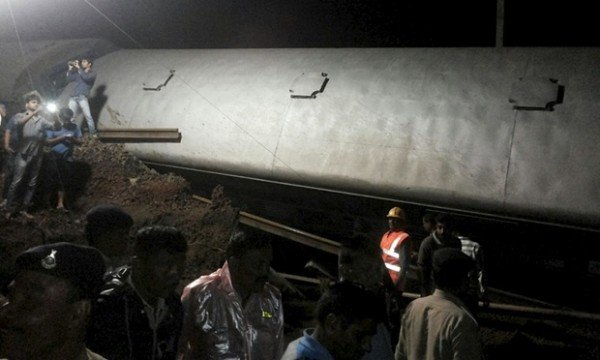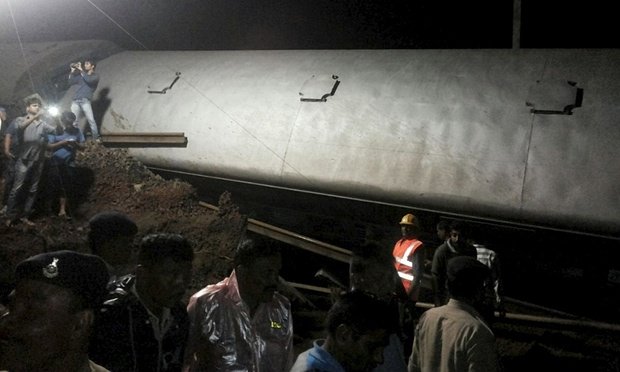At least 24 people have been killed in India after two passenger trains in Madhya Pradesh have derailed minutes apart on a flooded bridge, officials say.
The trains were passing each other near the town of Harda when a flash flood triggered by heavy rain struck the bridge, reports said.
The tracks collapsed and some of the carriages were submerged.
According to officials, at least 25 people have been injured and another 300 rescued.
The Kamayani Express travelling from Varanasi to Mumbai derailed first, while the Janata Express travelling in the opposite direction derailed shortly after.
The Press Trust of India reported that it was not clear how many passengers were on the trains.
The bridge crosses the Machak river, about 590 miles from India’s capital, Delhi.
Rescuers worked through the night, mostly in darkness, trying to free those trapped. Divers used gas-powered cutters to access the submerged carriages, officials added.
India has been badly hit by heavy monsoon rains and the tail-end of Cyclone Komen in recent days. More than 100 people have died in flooding, landslides and building collapses.
All the coaches had been cleared and bodies of the victims recovered, Madhya Pradesh railway police chief MS Gupta told AFP news agency.
However, MS Gupta said the death toll could rise slightly. It was not clear if any passengers remained unaccounted for.
Railways Minister Suresh Prabhu tweeted that he had ordered an inquiry and that he would make a full statement to the Indian parliament later on Wednesday.
PM Narendra Modi has also expressed concern, and offered condolences to the relatives of those who died.
Safety standards on India’s massive state-run railway network, which operates 12,000 passenger trains and carries some 23 million passengers every day, has been an ongoing concern amid a spate of accidents.
Correspondents say the state-run railway network has a patchy safety record – there has been little investment in upgrading decaying tracks and signals, and India lags behind on anti-collision technologies.
Decades of neglect, low investment and subsidized fares have left the network in a shambles, correspondents say.
https://www.youtube.com/watch?v=Gua7kK8H3vM
